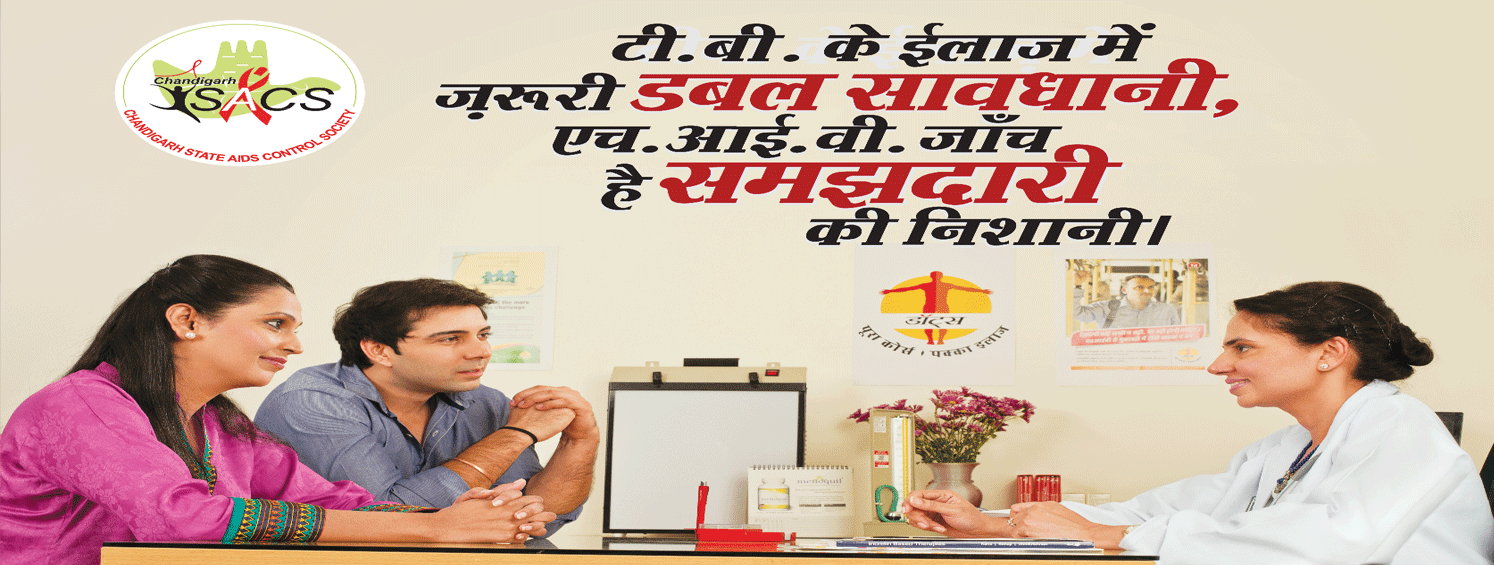|
|
STI PROGRAMME
|
|
STD means Sexually Transmitted Diseases caused by microbes that are passed from
one person to another through sexual contact.
The term ?Sexually Transmitted Infections? is a newer term used to indicate that
infections caused by microbes may not manifest as symptoms and do not always result
in a disease.
STD terms became laden with moral judgments and as medical and public health professionals
began to see the need for a more accurate, technical description, the term STI was
approved by WHO and hence became the standardized term.
HIV is a STI and is transmitted through the same behavior that transmits other STI.
About 86% of the HIV infection is transmitted through the sexual route, whenever
there is risk of STI, there is risk of HIV infection as well.
According to WHO, STI and their complications rank in the top five disease categories
for which adults in developing countries seek health care.
The threat of AIDS has focused greater attention in the importance of RTI including
STI. As per World Health Organization, estimates 10% of adults are newly infected
with curable sexually transmitted disease each year.
The NACO data indicates that awareness about RTI/STI in men is 53% while in women
is only 44%. It is estimated that about 6% of the adult population (15-49 yrs.)
have RTI/STI episode in a year which amounts to about 30 million episodes per year
(ICMR study, 2002).
STI transmission mainly depends upon sexually behavior. A person with many sexual
partners is much more likely to acquire a STI than a person with one partner.
|
At a glance:-
|
- RTI/STI are increasing and constitute one of the major causes of ill health in our
country.
- RTI/STI infection increases the risk of HIV transmission.
- RTI/STI cause serious complications in men and women, including infertility.
- RTI/STI are responsible for reproductive loss: spontaneous abortion, ectopic pregnancy,
still birth, prematurity, neonatal infections, maternal mortality.
- If left unscreened and untreated one of the serious consequences is cervical cancer
in women in India.
|
To provide quality STI/RTI services in Chandigarh as per national guidelines, Chandigarh
SACS has four NACO designated STI clinics at the Govt. health facilities. These
clinics are now called Suraksha Clinics.
To High Risk Group population i.e. Female Sex Workers (FSWs), Migrants, Men Having
Sex with Men (MSMs) and Intravenous Drug Users (IDUs), STI/RTI services are provided
through partner NGO under Preferred Private Practitioners Scheme.
|
SURAKSHA CLINICS

|
NDSC’s Clinics (NACO Designated STI Clinics) |
|
|
Deptt. Of Dermatology, Venerology & Leprology
Room No. 5012, 5th Floor, C - Block, New OPD, PGIMER, Chandigarh |
PGIMER |
Deptt. of Obs. & Gynae, PGIMER, Chandigarh |
Deptt. Of Dermatology, Venerology & Leprology
Room No. 4301, 4th Floor, B-Block, GMCH-32, Chandigarh |
GMCH-32 |
Deptt. Obs. & Gynae, GMCH 32, Chandigarh |
G.H-16, Skin OPD Room No. 521, 5th Floor,
New OPD Block, Govt Multi Speciality Hospital, Sector-16, Chandigarh |
GMSH-16 |
Deptt. of Obs. & Gynae, GMSH 16, Chandigarh |
Mani Majra Room No 19, Ground Floor.
Mani Majra, Chandigarh |
|
|
Police Hospital,
Room No 105, Police Hospital-26, Chd |
|
|
|
Services provided by Suraksha Clinics
|
- Free Counseling Services
- Free Treatment in the form of Color Coded Drugs Kits
- Free condom distribution
- Free Syphilis screening/ HIV testing and other investigations as per need
|
|
|



